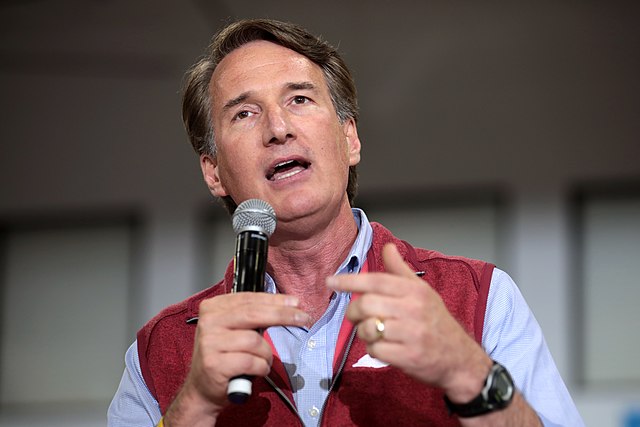While Governor Glenn Youngkin has not vetoed a bipartisan bill to remove two license plates recognizing the Confederacy, he is requiring the Democrat-led effort to submit to another vote next year.
Youngkin amended the bill by directing the Virginia Department of Motor Vehicles to study the special Sons of Confederate Veterans and Gen. Robert E. Lee license plates.
This is the second study Youngkin has called for since the General Assembly passed legislation eliminating tax-exempt designations from Confederate organizations.
Del. Candi Mundon King (D-Prince William) criticized the governor’s recent actions as “cowardly” and a “waste of taxpayer dollars.”
According to King, Youngkin lacks the courage to stand up to individuals who whitewash the motivations of the Confederate States of America who also support his administration.
The governor’s spokesman strongly disputed the allegations, pointing out that Virginia has 275 specialty plates, including several added by lawmakers this session.
As Virginia Mercury reports:
“The governor’s amendment is aimed at understanding the financial impact of removing specialty plates on state revenue,” Martinez wrote. “In addition, he hopes the Department of Motor Vehicles can work towards a consistent policy to present the General Assembly on how to sunset license plates with low circulation and revisit the bill next year in a more holistic way.”
Over the last four years, Virginia leaders and localities have taken steps to address the commonwealth’s history related to white supremacy and institutional racism by implementing policy changes and reviewing how these topics are addressed in the public education system. Several localities have taken action, sometimes controversial, by renaming roads that bore monikers of people connected to slavery and removing signs and symbols such as Confederate statues.
Opponents and some Republicans, including Sen. John McGuire from Goochland and Del. Tim Griffin of Bedford, said during this year’s session that removing the license plates would violate constitutional free speech protections and create further divisiveness.
“If we pass this bill, a citizen will sue Virginia, and they will use this debate to show the intent of this bill is to kill speech because some in this body did not like the message,” McGuire said during a Feb. 27 Senate floor hearing.
In 2020, Virginia granted local governments the authority to contextualize, relocate or altogether remove Confederate monuments in their communities.





